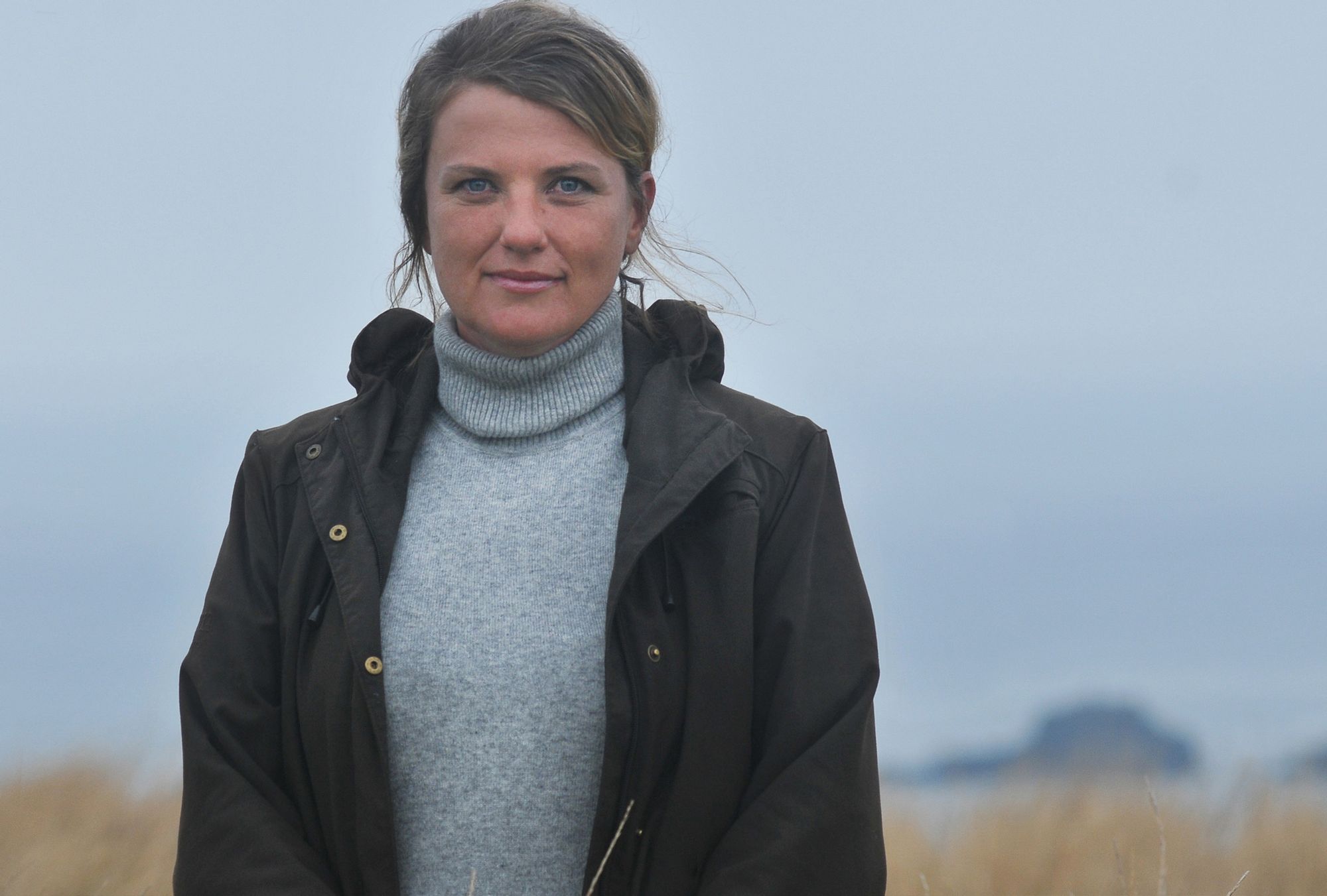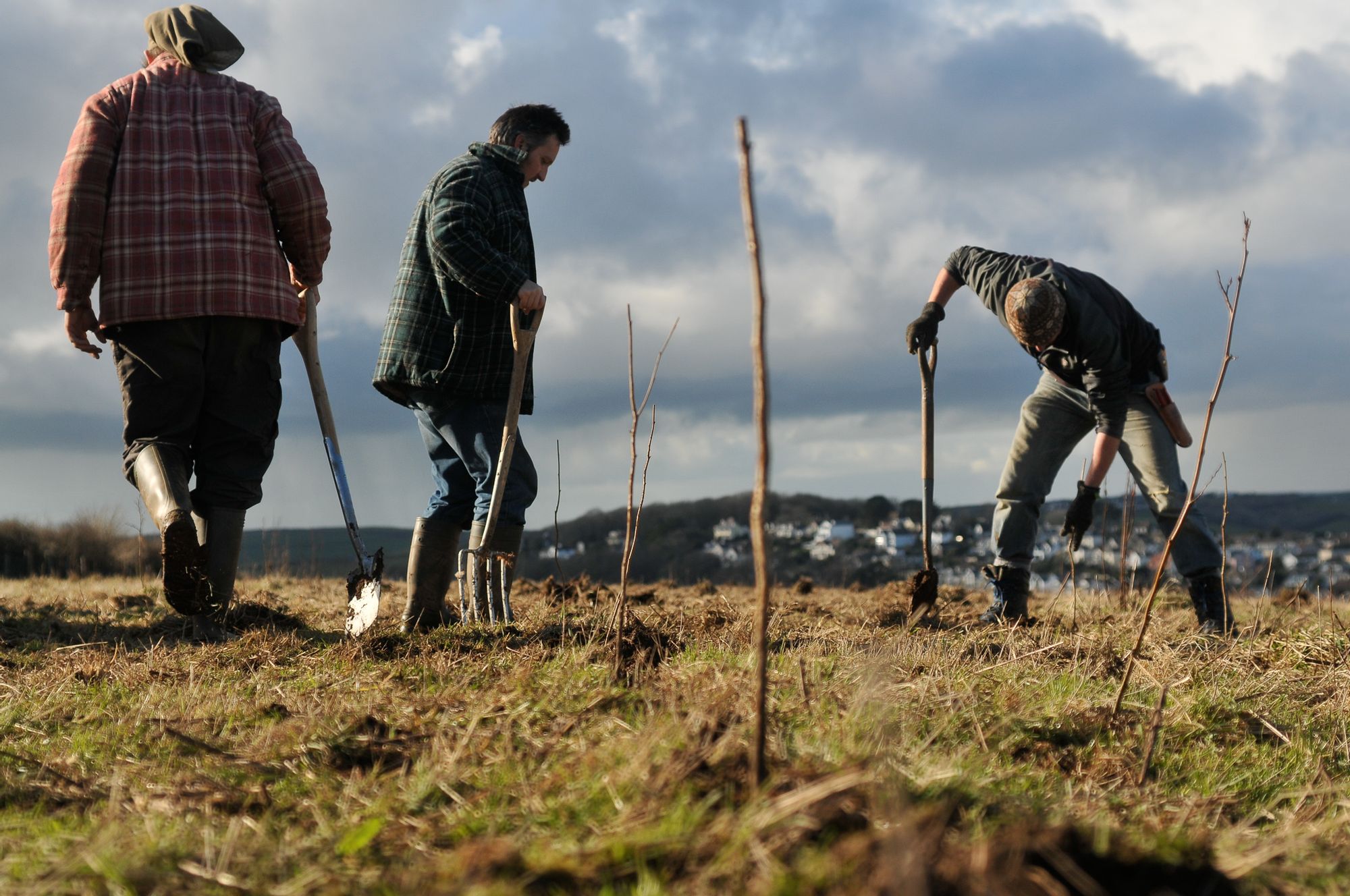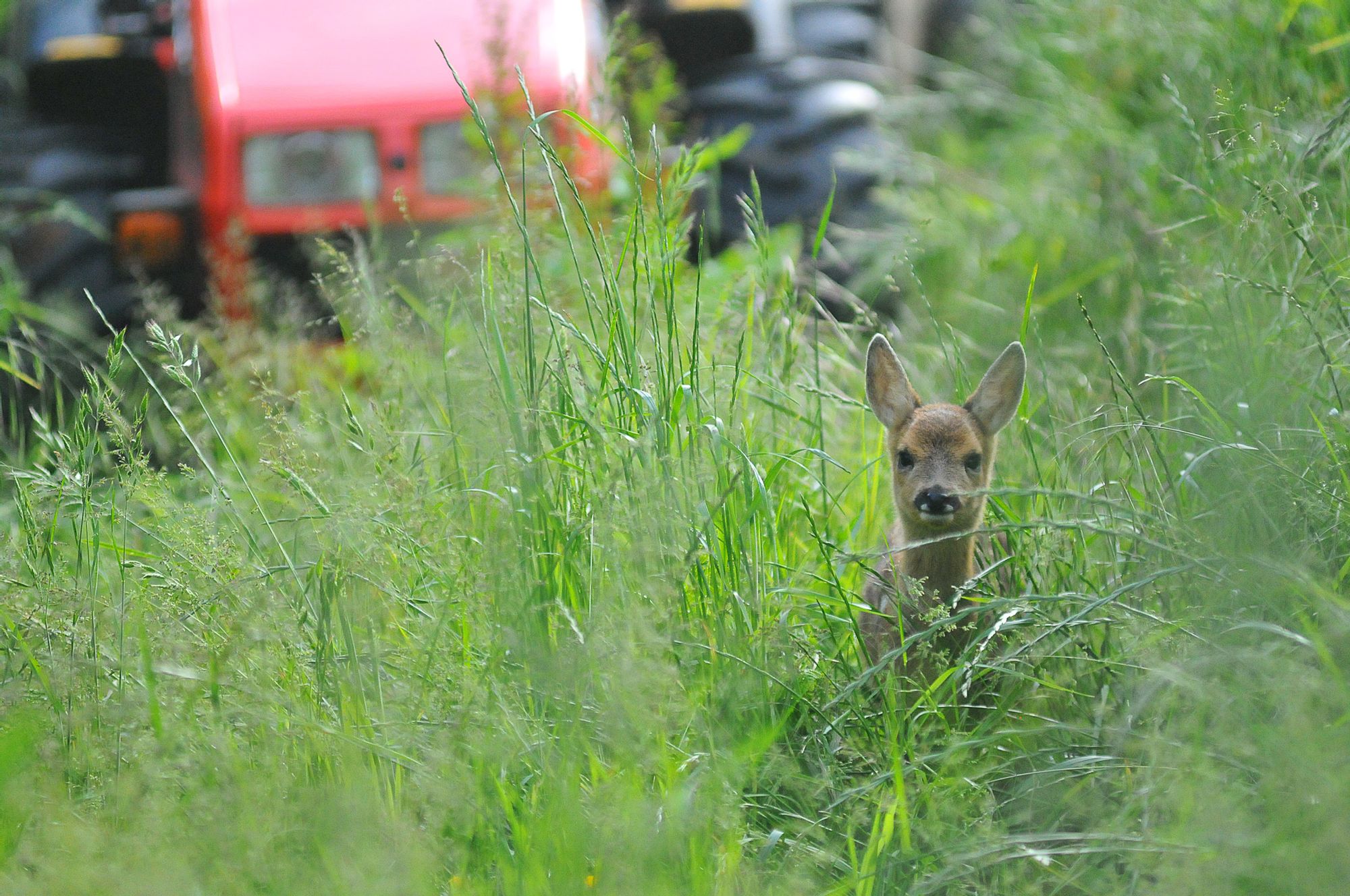
"Our western culture has made us this destructive force."
Future Land: An interview with Rebecca Hosking, regenerative farmer, writer and consultant.
This article is part of Inkcap’s FUTURE LAND series. Read full transcript.
Seen from afar, Village Farm was beautiful: 175 acres perched on the clifftops of South Devon.
Close up, however, the scene lost its allure. The land had suffered decades of intensive management, which had ravaged the topsoil and scrubbed it of life.
When Rebecca Hosking and her then-partner, Tim Green, took over the tenancy in 2014, they arrived with a vision. Village Farm would become a jewel in the crown of British farming: a place where wildlife thrived in tandem with the production of healthy, organic food.
And it did. The farm soon welcomed its first flock of sheep, and then its first lambs. (The driving rain meant that some newborns caught hypothermia; Rebecca and Tim nursed their cold bodies back to life in their kitchen Aga.) They sowed more than 80 species of flowers, including herbs to reduce the methane emitted by the livestock.
Even when Rebecca and Tim separated as a couple, they continued to run the farm as best friends, experimenting with grazing systems inspired by the migration of African herds, mixed “flerds” (flock plus herds) of goats and pigs, and groves of trees through which their animals could wander.
Then, on 10 February 2017 – exactly four years ago today – Tim was killed in a tractor accident. The tragedy had a dramatic impact on the farm: some staff left, leaving just two individuals struggling with their own grief, unable to rest or recover.
“All the beautiful parts of the farm – collecting wildflower seed and dispersing it into other fields and creating nest boxes and like – all of that had to be chopped away because we had a thousand animals that we had to look after,” says Hosking.
“There was none of the creative side to it anymore. And actually, I realised what we were: just livestock farmers. We were keeping these animals alive so that we could take them, when we decided, to an abattoir, to kill them to turn them into meat, and that was something I really wasn't happy with. There was none of the life-giving anymore, it seemed to be just the life-taking.”

Soon after, she gave up the tenancy of Village Farm. Rather than return to her old career – she’d worked throughout her 20s and mid-30s as a wildlife camerawoman for the BBC – Hosking decided to do a course in psychology. Her tutor, recognising the signs of PTSD, directed her towards a psychotherapist.
The therapy and the psychology course helped Hosking to process the tragedy of the last year, but it also catalysed a shift in how she perceived humanity’s relationship with the land. She realised that, just as our childhoods can help to understand our adult emotions, so we can look to the past to explain our current dysfunctional relationship with nature.
“At that point, I realised it was all about narratives and language, and about how things I thought were built in stone about my perception of myself could change,” she says. “When I realised that, I realised that, actually, it can also change for the natural world – we can change the language around how we talk about the natural world to change our relationship with it as well.”
Hosking started to re-think her own relationship with nature in light of some of the conversations she’d had while working on nature documentaries for the BBC. She had tried to learn some of the language wherever she travelled, asking locals for their translation of “nature”. Often, there wasn’t one; rather, the natural world was framed as a “mother” or an “ancestor”, for example.
Today, Hosking and her partner are raising a flock of wool sheep on a patch of her family’s farm in Devon, where they have been trying to recreate this way of thinking and speaking about nature.
“We’re very aware of cultural appropriation, so we're using language that fits the UK and fits Devon and that we're comfortable with,” she says; in a couple of months’ time, for instance, they will welcome the arrival of the swallow tribe and the swift clan. “I know the UK is very against anthropomorphizing other species, but by doing that, you push away and you're once again into this mechanical, cold, objectifying language.”

Hosking believes that alongside this shift in language must come a deeper understanding of local ecology – a shift towards the kind of wisdom and practices cultivated by Indigenous cultures around the world; studies have shown that biodiversity is better preserved in areas controlled by Indigenous people.
She stresses that this doesn’t mean lifting management techniques from a tropical forest and applying them to a farm in Devon, but rather shifting your perspective towards the earth.
“I think one of the first lessons – and that's what I'm now having to do – is to look at our land with a completely different set of eyes. Even though I thought I was rather good at the ecology here, I realised I was rather pathetic,” she says. “I think it may take generations to properly change. It's not something we can quickly pick up.”
Then there are the more practical questions: in particular, can a regenerative farming model provide the food we need to survive? At a time when the notion of conjuring nutrients out of the air, using hydrogen and electricity, is being proposed as a solution to intensive agriculture, does Hosking’s approach offer a realistic alternative?
Hosking believes it’s possible, through a combination of “stacking” – where different products are grown on different levels; fruit grown above pig grazing, for instance – and diet change, including less meat and more nuts.
She worries that separating people from their food represents “the most extreme rewilding”, where humans and nature are treated as incompatible.
“The conservationists and the rewilders are quite anti-agriculture because they just see us as destroying biodiversity and pushing our own will onto the land, whereas rewilding is the complete opposite; almost this narrative that humans are really bad for the environment and biodiversity,” she says.
“Whereas Tim and I were of the opinion that, well, hang on, humans can be a force for good. For many cultures around the world, we aren’t so destructive; it's our Western culture that has made us this destructive force. Surely we need to have a model where we can be beneficial agents within the landscape.”
So Green coined a new word to describe their approach: agriwilding. It describes a shared approach to the land, where humans are merely a keystone species, and other creatures are given the space they need to thrive.
One month later, before they had had a chance to flesh out the idea, Green was gone.

Today, Hosking is in a better place. After Green’s death, she wrote up the eight principles of agriwilding; she sees it as his legacy, though imagines it would have evolved if he were here today. Alongside her sheep farming, she is writing a book and is helping new entrants into regenerative farming.
Still, she recognises that there are major obstacles to a widespread shift in how farming is practised in the UK: farmers are busy, change brings risks, and bills must be paid.
“In 2017, if you'd told me, ‘You'll be reading lots in the next couple of years and you'll have the time to think and theorise, but this is why you’re going to have to do it,’ of course, I would never have taken it,” she says.
“You find that the farmers who do change are ones that are really up against the wall, who are going to lose everything if they don't change. Or the other way around: they're incredibly wealthy landowners that can afford to change.”
Village Farm is no longer just a pretty spot atop a Devon cliff. Those once-denuded fields have witnessed ecological renewal and a traumatic death. The land is etched with its story: a tale of nature and humans, and of a place where the lives of both entwine.
All image credits: Rebecca Hosking
Subscribe to our newsletter
Members receive our premium weekly digest of nature news from across Britain.
Comments
Sign in or become a Inkcap Journal member to join the conversation.
Just enter your email below to get a log in link.








